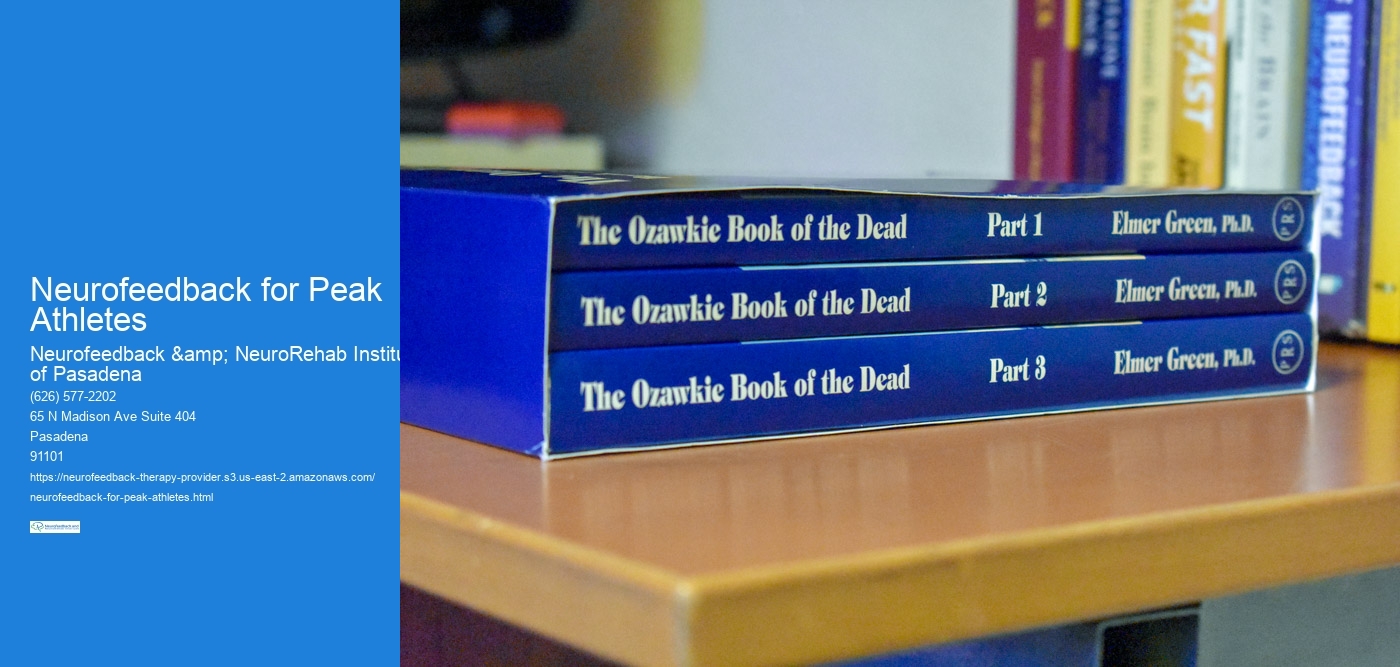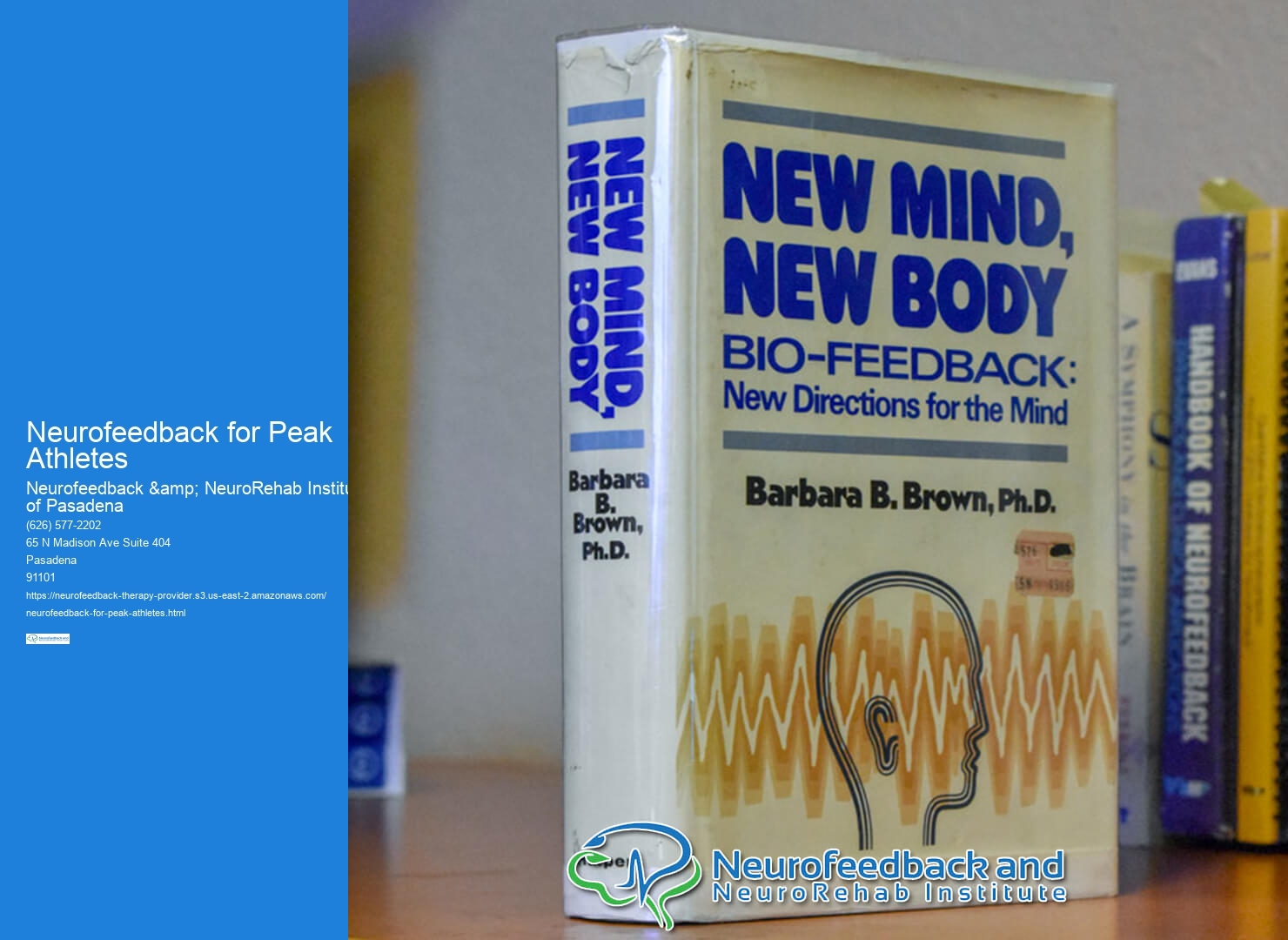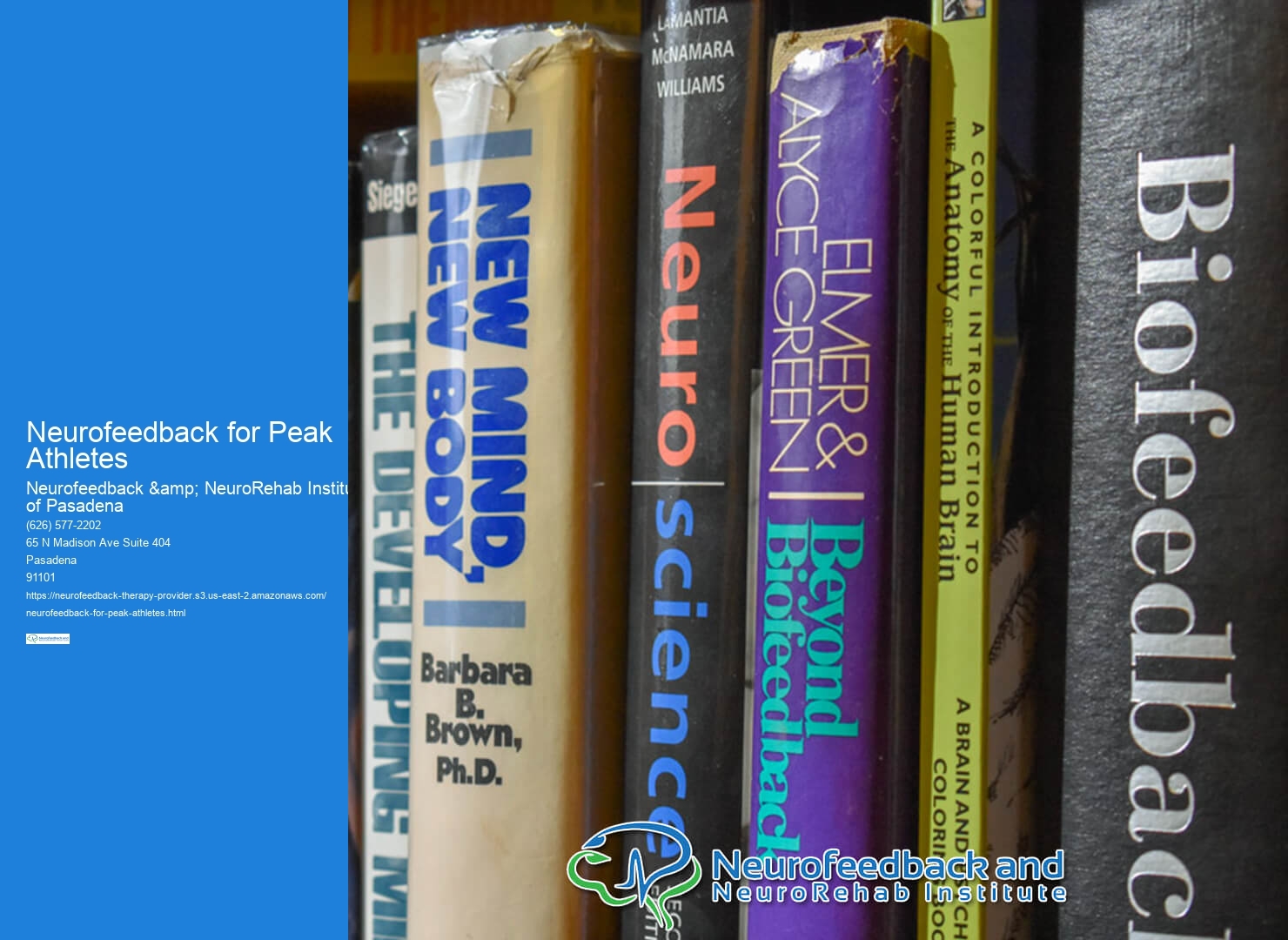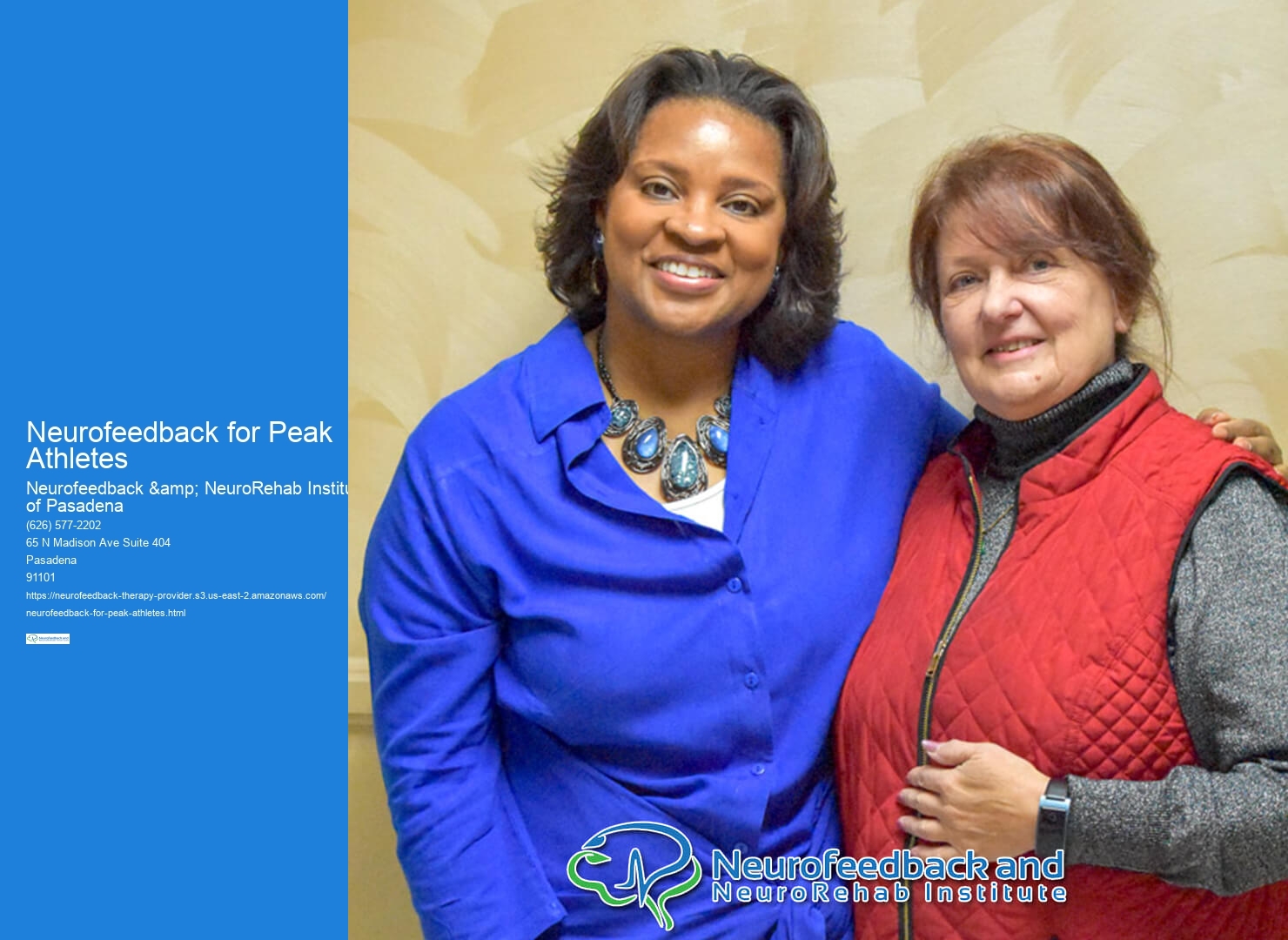

Neurofeedback training can benefit peak athletes by enhancing their performance through targeted brainwave regulation. By utilizing neurofeedback, athletes can improve their cognitive functions, emotional regulation, and overall mental resilience, leading to enhanced focus, decision-making, and stress management. This can result in improved athletic performance, as athletes are better able to maintain peak mental states during competition and training. Neurofeedback Facility Additionally, neurofeedback can help athletes recover from injuries more effectively, as it can aid in the regulation of brainwave patterns associated with pain perception and healing processes.
In neurofeedback training for peak athletic performance, specific brainwave patterns are targeted to optimize cognitive and physical abilities. This may include enhancing the regulation of alpha and beta brainwave frequencies, which are associated with focus, attention, and motor coordination. Biofeedback Therapist By training the brain to produce these patterns more consistently and efficiently, athletes can experience improved reaction times, decision-making, and overall performance in their respective sports.
Neurofeedback can indeed help peak athletes improve their focus and concentration during high-pressure situations. By targeting specific brainwave patterns associated with attention and stress regulation, athletes can learn to maintain optimal mental states even in the face of intense pressure. Brainwave Training Center This can lead to improved performance under stress and better decision-making during critical moments in competition.

The potential long-term effects of neurofeedback training on peak athletes' cognitive and physical abilities are promising. EEG Neurofeedback Specialist With continued neurofeedback training, athletes may experience sustained improvements in focus, attention, and emotional regulation, leading to enhanced performance and resilience over time. Additionally, neurofeedback may contribute to better recovery from injuries and improved overall well-being, supporting long-term athletic success.
Neurofeedback training addresses and improves peak athletes' stress management and resilience by targeting brainwave patterns associated with stress response and emotional regulation. Through neurofeedback, athletes can learn to modulate their stress responses more effectively, leading to improved performance under pressure and better overall mental resilience. This can contribute to enhanced athletic performance and well-being, both on and off the field.

There are indeed specific neurofeedback protocols tailored to different types of peak athletic activities, such as endurance sports versus explosive power sports. For endurance sports, training may focus on enhancing sustained attention and mental endurance, while for explosive power sports, the emphasis may be on improving reaction times and motor coordination. By tailoring neurofeedback protocols to the specific demands of each sport, athletes can experience more targeted and effective performance enhancements.
Scientific evidence supports the effectiveness of neurofeedback for optimizing peak athletic performance. Studies have shown that neurofeedback training can lead to improvements in attention, focus, emotional regulation, and overall cognitive function, all of which are crucial for athletic success. Neurofeedback Treatment Provider Additionally, research has demonstrated the potential for neurofeedback to enhance physical performance and recovery, further supporting its role in optimizing peak athletic performance.

Neurofeedback therapy typically involves a series of sessions, with the exact number varying depending on the individual's specific needs and goals. On average, clients may undergo anywhere from 20 to 40 sessions, although some may require more or fewer sessions based on their unique circumstances. Factors such as the severity of the condition being treated, the individual's responsiveness to the treatment, and the specific protocol being used can all influence the number of sessions needed. It's important for clients to work closely with their healthcare provider or neurofeedback practitioner to develop a personalized treatment plan that takes into account their specific needs and progress throughout the therapy process.
Neurofeedback, also known as EEG biofeedback, is a non-invasive technique that utilizes real-time monitoring of brainwave activity to provide individuals with information about their brainwave patterns. Through the use of specialized equipment, neurofeedback aims to influence brainwave frequency bands, such as delta, theta, alpha, beta, and gamma, by providing feedback to the individual in the form of auditory or visual cues. By targeting specific frequency bands, neurofeedback seeks to modulate and optimize brainwave activity, promoting desired patterns associated with improved cognitive function, emotional regulation, and overall well-being. This process involves training the brain to self-regulate and adjust its activity within these frequency bands, ultimately leading to potential improvements in attention, relaxation, and mental performance.
Neurofeedback has shown promise in the treatment of chronic pain by targeting the central nervous system and brain activity. By utilizing electroencephalography (EEG) to monitor brainwave patterns and providing real-time feedback, neurofeedback aims to regulate neural activity and modulate pain perception. This non-invasive, drug-free approach focuses on enhancing self-regulation and promoting neuroplasticity, potentially leading to long-term pain management. Research suggests that neurofeedback may help alleviate chronic pain by addressing underlying neurological dysregulation, promoting relaxation, and improving overall well-being. While further studies are needed to fully establish its efficacy, neurofeedback presents a promising avenue for individuals seeking alternative methods for managing chronic pain.
Z-Score Neurofeedback is a form of neurofeedback therapy that utilizes quantitative electroencephalography (qEEG) to measure and analyze brainwave activity. This approach involves comparing an individual's brainwave patterns to a normative database, allowing for the identification of deviations from typical brain function. By targeting specific areas of the brain and providing real-time feedback, Z-Score Neurofeedback aims to train the brain to self-regulate and optimize its functioning. This process involves the use of advanced technology and specialized protocols to address various neurological conditions, such as ADHD, anxiety, depression, and traumatic brain injury. Through repeated sessions, individuals can potentially experience improvements in cognitive function, emotional regulation, and overall well-being.
Neurofeedback has shown promising results in the treatment of anxiety disorders, with research indicating its effectiveness in reducing symptoms such as excessive worry, restlessness, and irritability. By utilizing advanced technology to monitor and train brainwave activity, neurofeedback targets specific neural pathways associated with anxiety, promoting self-regulation and emotional stability. This non-invasive approach leverages neuroplasticity to rewire maladaptive patterns, fostering a sense of calm and resilience. Furthermore, studies have demonstrated the potential of neurofeedback to enhance cognitive flexibility, attentional control, and stress management, offering a comprehensive therapeutic intervention for individuals grappling with anxiety-related challenges.
Neurofeedback, also known as EEG biofeedback, is a non-invasive therapeutic technique that aims to regulate brain activity by providing real-time feedback on brainwave patterns. Research suggests that neurofeedback may be a promising adjunctive treatment for individuals with bipolar disorder, as it targets the dysregulated brain activity associated with the condition. By training individuals to self-regulate their brainwave patterns, neurofeedback may help improve mood stability, emotional regulation, and cognitive function in individuals with bipolar disorder. However, it is important to note that neurofeedback should be used as part of a comprehensive treatment plan, and individuals with bipolar disorder should consult with a qualified mental health professional to determine if neurofeedback is suitable for their specific needs.